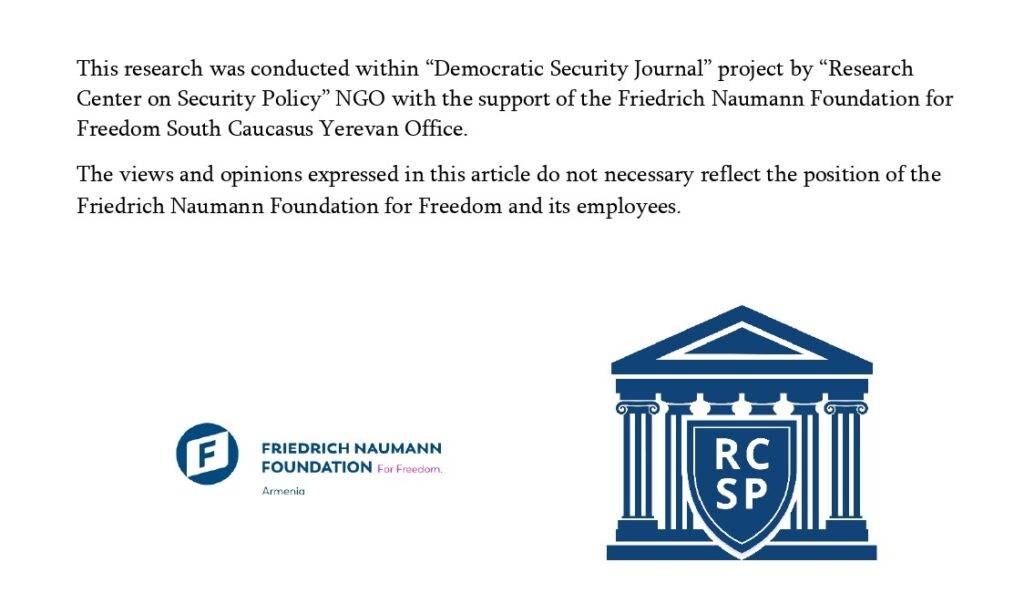Introduction
In the past four years, the topic of unblocking regional communications in the South Caucasus has been actively discussed across various platforms. At the core of these negotiations lies a provision from the trilateral statement of November 9, 2020, which has seen increasing divergence in interpretation among the parties involved. On August 7, 2024, it was revealed that by mutual agreement between Yerevan and Baku, the article related to communications was removed from the draft peace agreement, leaving it for future discussions. However, weeks later, following the state visit of the Russian President to Baku, talks on the matter were re-energized. The Russian side began openly accusing Armenia of sabotaging the agreement regarding communications passing through the Syunik region, which has significantly heightened tensions in the region.
The differences in the interpretation of the 9th point
For Armenia, which has been under blockade by Azerbaijan and Turkey for more than 30 years, the unblocking of communications is of vital importance in terms of strengthening its resilience and sovereignty. Yerevan prioritizes four principles in this process: sovereignty, jurisdiction, equality, and reciprocity. The Armenian side is also attempting to show flexibility in the unblocking process, not ruling out the possibility of innovative logistical solutions and even the delegation of certain functions.
In relation to the trilateral statement, Armenia emphasizes that the issue concerns all communications within the region, not just the routes passing through Syunik. Moreover, Armenia must be the one responsible for ensuring the security of these communications, while the Russian border guards are assigned a purely supervisory role. To eliminate any misunderstandings regarding the term “supervision,” Yerevan refers to Vladimir Putin’s Decree No. 695, according to which Russian border guards are not tasked with providing security or controlling the transportation but rather overseeing Armenia’s provision of secure communications.
In the process of unblocking communications, Azerbaijan is focused on establishing an unobstructed connection with Nakhchivan. Baku’s ambitions are not new; as early as the 1990s, in the context of resolving the Nagorno-Karabakh conflict, Heydar Aliyev attempted to promote the idea of exchanging Meghri for Lachin, which would have secured a link with Nakhchivan.
Today, Baku, citing the trilateral statement, demands a special-status connection with Nakhchivan, effectively challenging Armenia’s sovereignty over it. According to Baku, Armenia should neither levy customs duties nor conduct border checks on those routes. Such a corridor would enable Azerbaijan to reduce its dependence on Iran for transit, ensuring a short and unobstructed link between Nakhchivan and Turkey.
It is noteworthy that Baku’s rhetoric regarding the demand for a corridor has undergone changes. Initially, there were explicit threats that if Armenia did not provide the corridor, it would be taken by force. In 2022, Azerbaijan reached an agreement to construct a new road and railway through Iranian territory. Baku then began asserting that it has alternatives, and if the desired corridor is not granted, Armenia would remain isolated.
The third party in the November 9 statement also has its own interests. Moscow insists that its border guards should oversee the communications passing through Syunik. Russia does not consider this a blow to Armenia’s sovereignty, pointing to the long-standing presence of Russian border guards on the Armenian-Iranian and Armenian-Turkish borders.
The Subject of Communications Through Regional and Extra-regional Prism
The issue of communications in the South Caucasus pertains not only to Armenia and Azerbaijan but also touches upon the interests of regional and extra-regional powers. It is, for instance, sensitive to Iran. The new challenges that emerged after the 44-day war and the strengthening of Azerbaijan’s role in the region compelled Tehran to reassess its political strategy.
In parallel with Azerbaijan’s demands for a corridor, Iran has increasingly articulated its stance that any redrawing of borders and geopolitical changes in the region are unacceptable. Tehran opposes any corridor demands, as they pose a threat to its own border with Armenia. In this regard, the unprecedented military exercises conducted by Iran in 2022, which simulated scenarios involving the crossing of the Araks River, were particularly telling, as was the opening of a consulate in Kapan.
Unlike Tehran, Turkey fully supports Azerbaijan, including on the issue of the “corridor.” Moreover, recently, when Azerbaijan was restrained from vocalizing its demands for the corridor, Ankara took the lead in promoting it. Such a corridor would provide Turkey with an opportunity to strengthen its positions in the region, advance the concept of the Turkic world to a new level, and enhance its transit role.
The prospect of unblocking communications is also of interest to the United States and the European Union, which view the issue within a geopolitical context. According to Washington and Brussels, countries in Central Asia can establish connections with the outside world through the South Caucasus, bypassing Russia, China, and Iran. The U.S. and the European Union have repeatedly expressed their willingness to provide expert, technical, and financial support for the process of unblocking communications.
China is also among the stakeholders in the communications of the South Caucasus; however, it does not stand out with public statements. Sanctions against Russia have also limited the logistical capabilities of Chinese exporters. Beijing is searching for alternative routes, and the Middle Corridor project is quite appealing to it. Over the past year and a half, China has established a strategic partnership with Georgia and Azerbaijan and signed several documents related to logistical cooperation. In this regard, Armenian-Chinese interactions have been relatively passive.
Proposals
In order to mitigate potential risks and maximize opportunities in the process of unblocking communications, the following steps may be considered:
- Reviewing the Agreement on the Status of Russian Border Guards in Armenia
Given that Moscow is attempting to legitimize its claim to control potential communications through Syunik by maintaining the presence of Russian border guards in southern Armenia, it is necessary to first organize joint Armenian-Russian patrols along the Armenian-Iranian border to change the image of exclusive Russian presence on the ground. Following this, consultations should begin on the withdrawal of Russian border guards from the Armenian-Iranian border. It is essential to hold preliminary consultations with Tehran to secure its support for this move.
- Withdrawal of Armenia’s Signature from the Trilateral Declaration
The parties to the trilateral declaration, Russia and Azerbaijan, are evidently distorting its content and attempting to impose concessions on Armenia by leveraging this document. Thus, it is advisable to retract Armenia’s signature, for which there are more than sufficient grounds (the blatant violation of nearly all provisions by Azerbaijan and Russia, the depopulation of Nagorno-Karabakh, etc.).
- Enhancing the Strategic Importance of Syunik Province for International Stakeholders
It is advisable to initiate efforts to attract Western investments into the mining sector of Syunik Province. Simultaneously, it is essential to strictly adhere to timelines and quality standards in the implementation of the region’s infrastructural projects.
- Advancing the “Crossroads of Peace” Initiative
It is crucial to continue working with international partners to ensure the broadest possible consolidation around the “Crossroads of Peace” initiative. Special attention should also be directed towards China.
Author: RCSP associate expert Narek Minasyan


